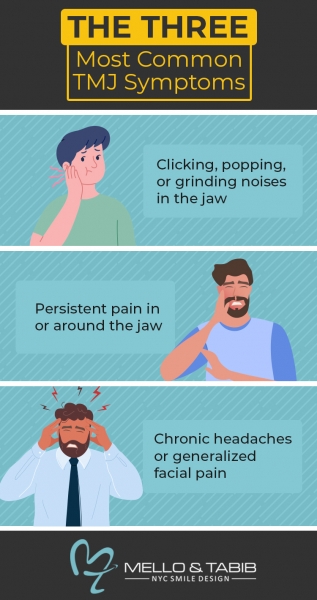Search for topics or resources
Enter your search below and hit enter or click the search icon.
June 4th, 2020
1 min read


TMJ is not one condition, but rather an umbrella term for any number of issues that can impact jaw alignment. In some cases, the underlying cause of TMJ is arthritis. In others, it may be trauma. Some instances are self-inflicted through bruxism or poor stress management, and others still are the result of underlying bite irregularities.
Regardless of its cause, TMJ may present with symptoms including, but not limited to:
If you are experiencing any of these symptoms, it is a good idea to bring them to the attention of your dentist. This can be done during a routine visit, but if your symptoms are interfering with your lifestyle or general comfort, calling to schedule a neuromuscular evaluation is important.
TMJ is treatable, but only if it is diagnosed. Left untreated and its symptoms may get worse or even progress to causing postural problems, digestive difficulties, and other systemic issues.

TMJ is treated by a neuromuscular dentist. Neuromuscular dentistry is focused almost entirely on the diagnosis and treatment of TMJ. This dental specialty requires additional schooling, training, and continuing education and is not offered by all general dentists.
If you are seeking treatment for TMJ symptoms, it is important that you work with a neuromuscular dentist to help ensure you are receiving the best treatment possible.
Both Dr. Mello and Dr. Tabib have undergone additional training in neuromuscular dentistry. We utilize advanced diagnostic tools to detect jaw misalignment and offer several treatment options – ranging from simple jaw exercises all the way to surgery – to address various levels of jaw dysfunction.
If you are struggling with any of the symptoms of TMJ, we are here to help. Call us at 212-452-3344 to schedule your consultation at our Manhattan office today.
Topics: